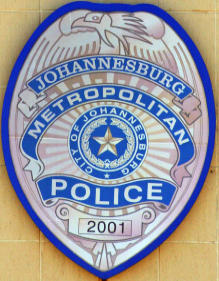|
Getting your Trinity Audio player ready...
|
 Dear Corruption Watch,
Dear Corruption Watch,
Friends of mine recently had their vehicle stopped at night by police officials. Their children were in the back seat. The police officials threatened to arrest my friends for drunk driving although they were perfectly sober. They felt that their car had been selected for intimidation because the police knew they wouldn’t take risks with their children present. With the festive season upon us, what exactly are my rights when confronted by police officials when driving?
Non-drinker
Dear Non-drinker
Much work has been done to reform the South African Police Service and ensure that the rank and file officers uphold and defend the constitution and the values of dignity and respect it seeks to promote.
However, there are a few members of the service who think that they are above the law. These bullies are the reason we still hear about excessive force used during arrest and of abuse suffered by arrested people. They are often also the same police officials who commit corruption by using (or threatening to use) their police powers to obtain a gratification of sorts, whether a coldrink or a monetary bribe.
Be that as it may, the same rules apply to everyone, and you are entitled to be treated with respect by a police officer.
What this means in practice, first, is that any member of the public, when stopped by a police officer, is entitled to ask to see the official’s appointment card. This also applies to a metro police officer. This card will contain the name, rank and station of the police official involved.
If the police official refuses to identify himself, you are under no obligation to further engage the person.
In turn, however, if a police official reasonably suspects you to have committed an offence, she or he may ask you to furnish your identification and address. If you are driving and the suspected offence is that of drunk driving, you will be asked to show your driver’s licence.
If reasonable grounds exist to believe that you have driven the vehicle under the influence, you may be lawfully arrested and taken to a police station to register the case and have a blood sample taken thereafter. The sample must be taken within two hours.
Other rights for drivers:
- A male police officer is not allowed to search a woman, but he can ask you to empty your pockets and bag;
- You are not obliged to pay fines on the spot. However, if there is a warrant of arrest against you, you can be detained until the fines are paid; and
- A police officer may not verbally abuse or intimidate you or anyone else. Get the details of any officer who has treated you unjustly.
Police members have these legal powers because we all want to live in a society in which genuine crime suspects (including drunk drivers) are apprehended by a professional and effective police service.
To adopt, as a matter of course, a defiant or obstreperous attitude serves no purpose but to put you at risk for being arrested for resisting the police in the execution of their duties.
Rather, our responsibilities as engaged and empowered members of society are to know our rights and confidently assert them.
When you are apprehended without reason by an abusive or corrupt police official, hold your ground, keep your cool, obtain and retain the details of names and ranks and registration numbers, and resist offering or paying bribes.
• This article was first published in Sunday Times: Business Times


